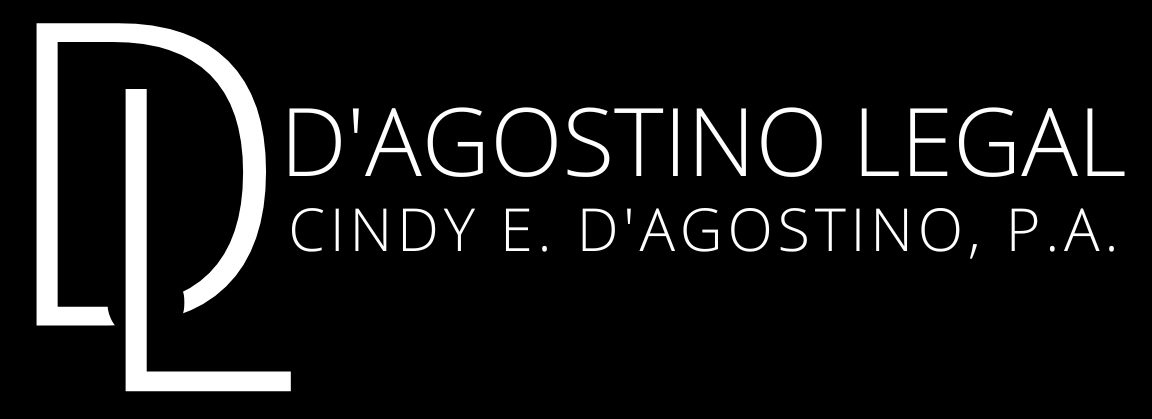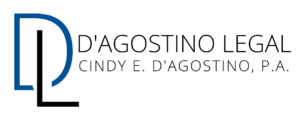Practice Areas
Court-issued documents that authorize law enforcement officers toconduct a search or make an arrest. Warrants require probable cause to believethat a crime has been committed and specify the areas to be searched or theindividuals to be arrested.
Legal issues that arise after a criminal conviction. This includes sentence modifications, appeals, habeas corpus petitions, or other challenges to the conviction or sentence. It provides avenues for individuals to seek review or relief from a conviction or sentence.
The process by which a convicted individual requests a highercourt to review their case for errors or unfairness in the trial or sentencing.Appeals focus on legal errors, procedural mistakes, or constitutional violationsthat may have occurred during the trial.
Violations related to controlled substances, including the possession, sale, manufacturing, distribution, trafficking, or cultivation of illegal drugs. Florida state law categorizes drugs into different schedules based on their potential for abuse and medical use.
Criminal acts involve the production or creation of illegal drugs, such as methamphetamine or cocaine. It encompasses activities like synthesizing, compounding, or cultivating controlled substances.
Offenses related to the unlawful sale, distribution, or transfer of controlled substances. This includes narcotics, prescription medications, or other regulated drugs. The sale can involve various quantities and circumstances.
Criminal charges associated with the unlawful possession or ownership of controlled substances. It encompasses both illegal drugs and prescription medications without a valid prescription. The severity of the offense may vary based on the type and quantity of drugs involved.
Criminal activities involve the transportation, distribution, or sale of large quantities of illegal drugs. Trafficking charges carry significant penalties due to the scale of the operation. The offense is determined based on the type and quantity of drugs involved.
Criminal offenses related to the unlawful sale, transfer, or delivery of controlled substances. It involves the dissemination of drugs to other individuals or groups, often for financial gain.
Criminal acts involve the growing, cultivating, or producing of marijuana plants. Cultivation can refer to the personal or commercial growth of marijuana, depending on the scale and intent of the operation.
Offenses specifically related to operating or managing properties used for the cultivation or production of marijuana in larger quantities. Grow houses typically involve the use of sophisticated equipment and techniques for indoor marijuana cultivation.
Laws prohibiting the possession, sale, or use of equipment, devices, or tools associated with drug-related activities. Examples include pipes, syringes, bongs, or other items used for consuming or preparing drugs.
Offenses involving the illegal acquisition, possession, sale, or distribution of prescription medications. This includes obtaining or distributing controlled substances without a valid prescription or through fraudulent means.
Criminal acts that involve obtaining or using prescription medications through deceit, misrepresentation, forgery, or other fraudulent means. This includes forging prescriptions, doctor shopping, or altering prescriptions to obtain controlled substances illegally.
Illegally seeking prescriptions from multiple doctors or healthcare providers to obtain excessive amounts of medication. It involves visiting different doctors without disclosing previous prescriptions or medical history.
Laws governing various sexual offenses, including misconduct, assault, battery, pornography, or failure to comply with registration requirements for sex offenders or predators.
Engaging in sexual behavior that is considered indecent or offensive, particularly involving minors. It includes acts such as lewd exposure, public sexual acts, or engaging in sexual activity with minors.
A serious sexual offense that involves non-consensual sexual contact or penetration, often accompanied by force, coercion, or incapacity of the victim.
Criminal acts involving the production, distribution, possession, or viewing of explicit materials depicting minors engaged in sexual activities. Child pornography is a severe offense with strict legal consequences.
The act of willfully exposing one’s genitals in a public place or in a way that is likely to be seen by others, leading to offense or alarm.
Violating the legal obligation to register as a sex offender or predator and provide accurate information to law enforcement authorities. Failure to comply with registration requirements can result in criminal charges.
A legal action that seeks the court’s declaration or clarification of an individual’s legal rights and obligations regarding sexual offender registration.
The unlawful killing of another person with malice aforethought, which includes intent to cause death or serious bodily harm. It is the most severe criminal offense.
The unlawful killing
A serious assault involves intentionally causing great bodily harm, permanent disability, or disfigurement to another person using a deadly weapon or with the intent to commit a felony.
The intentional and unlawful threat to commit violence against another person, accompanied by the apparent ability to carry out the threat. Aggravated assault involves the use of a deadly weapon without the intent to kill.
The intentional and unlawful physical contact or striking of another person against their will, causing bodily harm or offensive touching.
The intentional act of creating a reasonable apprehension of imminent bodily harm or unwanted physical contact in another person without actual physical contact occurring.
Acts of violence or battery committed against a family or household member, including spouses, former spouses, cohabitants, or individuals with a child in common. Domestic battery carries additional legal consequences and protective measures.
Legal orders are issued by the court to protect individuals from harm or harassment. Restraining orders may prohibit contact, require a person to stay away from specific locations, or impose other restrictions to ensure the safety of the protected person.
The intentional and unlawful striking, touching, or causing bodily harm to a law enforcement officer while they are performing their official duties.
Illegally entering a dwelling, structure, or conveyance with the intent to commit a crime inside, such as theft or assault. Burglary does not require actual theft or assault to be charged.
The act of taking another person’s property by force, threat, or intimidation. Robbery involves the use of force, violence, or fear to deprive someone of their belongings.
The unlawful confinement, abduction, or restraint of another person against their will, often involving the use of force or threat of harm.
The intentional and unlawful confinement, restraint, or detention of another person without their consent, restricting their freedom of movement.
The intentional and malicious act of setting fire to a property or structure. Arson involves the destruction of property through fire.
Carrying a concealed fire arm or other deadly weapon on one’s person without the proper permits or legal authorization.
The reckless or negligent discharge of a firearm or other dangerous weapon in a public place or in a manner that endangers others.
Prohibits individuals who have been convicted of certain felonies from possessing firearms. It is illegal for convicted felons to own or possess firearms.
A broad category encompassing various violations related to the possession, sale, use, or trafficking of firearms or other weapons. It includes the illegal possession of firearms, prohibited accessories, or engaging in unlawful weapons-related activities.
Operating a motor vehicle while impaired by alcohol, drugs, or a combination of both. DUI involves driving with a blood alcohol concentration above the legal limit or while impaired by drugs.
Causing the death of another person while driving under the influence of alcohol or drugs. It is a serious felony offense.
Refusing to submit to a breathalyzer or other chemical tests to determine blood alcohol concentration when suspected of DUI. Refusal can result in administrative penalties.
Operating a motor vehicle while one’s driver’s license is suspended, revoked, or canceled. It is a criminal offense.
Operating a motor vehicle with willful and wanton disregard for the safety of others, showing a conscious disregard for the foreseeable consequences of one’s actions.
Violations related to driver’s license requirements, such as driving without a valid license, driving with an expired license, or driving with a license from another jurisdiction while being a Florida resident.
Violations related to driver’s license requirements, such as driving without a valid license, driving with an expired license, or driving with a license from another jurisdiction while being a Florida resident.
The temporary suspension of a driver’s license by the Department of Highway Safety and Motor Vehicles due to certain violations or non-compliance with driver’s license requirements.
The designation is given to individuals who accumulate a specified number of major traffic offenses within a certain time period. It can result in lengthy license suspensions or revocations.
The act of intentionally disregarding a law enforcement officer’s signal to stop a motor vehicle, and attempting to evade capture or arrest.
Interfering with the administration of justice or law enforcement activities, such as providing false information, resisting arrest, or tampering with evidence.
Offenses involving unauthorized access, use, or manipulation of computer systems, networks, or data. Computer crimes may include hacking, identity theft, or distributing malware.
Illegally accessing computer systems, networks, or data without permission or exceeding authorized access privileges.
Illegally recording or monitoring conversations, activities, or private areas without the knowledge or consent of the individuals involved.
Violations related to the unauthorized use, distribution, or infringement of intellectual property rights, such as copyright infringement or trademark violations.
The theft of property valued above a specified threshold. Grand theft involves the unlawful taking or use of someone else’s property without their permission.
The theft of property valued below a specified threshold. Petit theft involves the unlawful taking or use of someone else’s property without their permission.
The act of shoplifting or stealing merchandise from a retail establishment.
Using someone else’s personal identifying information, such as their name, Social Security number, or financial account information, without their consent for fraudulent purposes.
Engaging in a systematic and ongoing scheme or course of conduct to defraud others or obtain property or services through fraudulent means.
Unauthorized use of someone else’s credit card or credit card information to make purchases or obtain goods or services.
The creation, alteration, or use of a false document or signature with the intent to deceive or defraud.
Issuing or passing a check with the knowledge that there are insufficient funds to cover the amount, or with the intent to defraud the recipient.
The misappropriation or theft of funds or property entrusted to one’s care, often through a position of trust or employment.
Willfully damaging, destroying, or defacing someone else property without their consent.
Engaging in disorderly or disruptive behavior in public while under the influence of alcohol or drugs, posing a threat to public safety, or causing a public disturbance.
Willfully obstructing, opposing, or resisting a law enforcement officer in the performance of their duties.
Non-violent crimes typically committed in business or professional settings, involve deceit, fraud, or dishonesty for financial gain.
Failing to comply with the terms and conditions of probation, which may include failure to report to a probation officer, drug use, or committing new crimes.
Legal processes allow individuals to remove or restrict access to their criminal records under certain conditions, providing them with a fresh start.
Criminal offenses are committed by individuals who are under the age of 18. Juvenile crime involves offenses such as theft, drug offenses, assault, or vandalism committed by minors.

